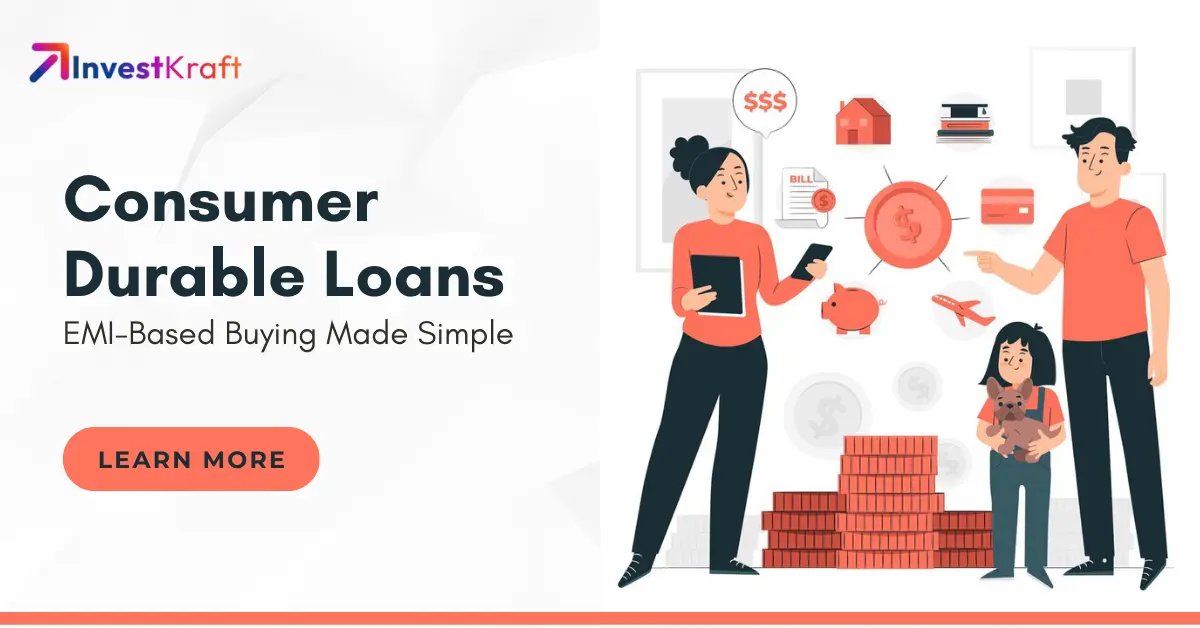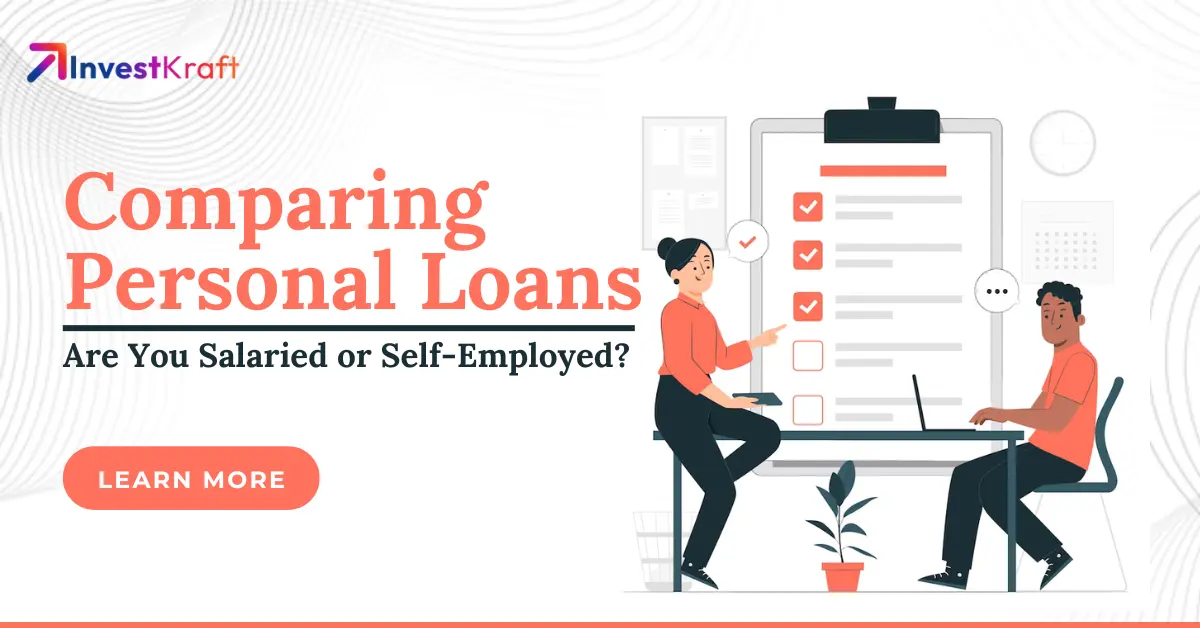A Complete Guide to Getting a Loan as a Self-Employed Individual in India

Being self-employed comes with a lot of freedom—you set your own hours, follow your passion, and call the shots. But when it comes to getting a loan, things can get tricky. Unlike salaried professionals who can easily show regular income and a Form 16, self-employed individuals often struggle to prove financial stability to traditional lenders.
But here’s the good news—getting a loan for a self-employed professional is absolutely possible. You just need the right strategy, proper documentation, and a lender who understands your profile.
In this blog, we will explore:
- Common challenges self-employed borrowers face
- Loan options available in India
- Tips to increase your chances of approval
- Alternative financing solutions
- Pro hacks for a successful application
Let’s get started!
Why Is It Harder for Self-Employed People to Get Loans?
Several factors make it more challenging for self-employed individuals to secure a loan compared to those with traditional employment. A few of them are discussed below:
1. Proof of Stable Income:
Lenders want assurance that you can repay the loan. For salaried employees, this is easy, they show pay stubs and tax returns. But if you’re self-employed, your income may fluctuate. Lenders may see this as risky.
2. Higher Credit Score Requirements:
Since self-employed borrowers are considered higher risk, lenders often require a stronger credit score (usually 700 or above).
3. Essential Documentation Requirements:
Banks may ask for multiple years of tax returns, business licenses, and financial statements - more paperwork than a traditional employee.
4. Longer Approval Process:
Because lenders scrutinize self-employed applications more carefully, approval can take longer.
5. Higher Interest Rates:
Due to perceived risk, some lenders charge self-employed borrowers higher interest rates.
How to Improve Your Chances of Loan Approval?
Despite these challenges, there are several strategies you can employ to increase your chances of securing a loan as a self-employed individual. Have a look at a few below:
1. Build a Strong Credit History:
- Establish and Maintain Good Credit Habits: Pay bills on time, keep credit card balances low, and avoid excessive credit inquiries.
- Use Credit Responsibly: Utilize credit cards for small purchases and pay them off in full each month to demonstrate responsible credit management.
- Consider a Secured Credit Card: This type of credit card requires a security deposit, which can help build credit history even with a limited financial background.
2. Demonstrate Financial Stability:
- Maintain Meticulous Financial Records: Keep accurate records of all income and expenses, including invoices, receipts, and bank statements.
- File Taxes Consistently: Filing taxes on time and accurately demonstrates your financial responsibility and provides a clear picture of your income.
- Maintain a Healthy Cash Flow: Ensure your business generates sufficient cash flow to cover operating expenses and potential loan repayments.
3. Prepare a Comprehensive Business Plan:
- Develop a Well-Structured Business Plan: Outline your business goals, target market, competitive analysis, financial projections, and management team.
- Highlight your Business's Strengths: Emphasize your unique selling proposition, competitive advantages, and growth potential.
- Demonstrate a Clear Understanding of your Industry: Show that you have a thorough understanding of your industry and the market you operate in.
4. Choose the Right Lender:
- Research Lenders Specializing in Self-Employed Loans: Some lenders have specific programs tailored to the needs of self-employed individuals.
- Compare Interest Rates and Loan Terms: Shop around and compare offers from different lenders to find the most favourable terms.
- Consider Alternative Lenders: Explore options like online lenders, credit unions, and government-backed programs that may have more flexible eligibility criteria.
5. Leverage Your Strengths:
- Highlight your Experience and Expertise: Emphasize your skills, experience, and industry knowledge to demonstrate your credibility and competence.
- Showcase your Business's Success: If you have a track record of success, highlight your achievements, such as positive customer reviews, industry awards, or consistent growth.
- Consider a Co-Signer: If you have difficulty qualifying for a loan on your own, consider finding a co-signer with good credit who can strengthen your application.
What are the Types of Loans for Self-Employed Individuals?
There are varied types of loans facilitated for self-employed individuals. You can have a look at the popular types of loans available for self-employed individuals in India:
1. Personal Loans:
- Best for: Quick funding, debt consolidation, or emergencies.
- Requirements: Good credit score (650+), proof of income.
- Pros: No collateral is needed, and fast approval.
- Cons: Higher interest rates for self-employed borrowers.
2. Business Loans:
- Best for: Expanding your business, purchasing equipment, or covering operational costs.
- Requirements: Business plan, financial statements, tax returns.
- Pros: Larger loan amounts, and business growth opportunities.
- Cons: Strict eligibility criteria.
3. Home Loans (Mortgages):
- Best for: Buying a house or refinancing.
- Requirements: 2+ years of tax returns, strong credit, stable income.
- Pros: Lower interest rates than personal loans.
- Cons: Lengthy approval process.
4. Secured Loans:
- Best for: Those with assets (home, car, savings) to use as collateral.
- Requirements: Collateral, decent credit score.
- Pros: Lower interest rates, and higher approval chances.
- Cons: Risk of losing assets if you default.
5. Peer-to-Peer (P2P) Loans:
- Best for: Borrowers who struggle with traditional banks.
- Requirements: Moderate credit score, income proof.
- Pros: Flexible terms, online application.
- Cons: Higher interest rates for risky borrowers.
6. Line of Credit:
- Best for: Ongoing access to funds (like a credit card).
- Requirements: Good credit, business revenue proof.
- Pros: Use only what you need, and pay interest only on the used amount.
- Cons: Variable interest rates, and potential fees.
Alternative Financing Options for Self-Employed Borrowers
If traditional loans aren’t an option for you, consider the options given below:
1. Invoice Financing
- Get an advance on unpaid invoices.
- Best for businesses with slow-paying clients.
2. Merchant Cash Advances
- Receive a lump sum in exchange for a percentage of future sales.
- Fast funding but very high fees.
3. Crowdfunding
- Platforms like Kickstarter or GoFundMe for business projects.
- No repayment is needed if donations-based.
4. Microloans
- Small loans (up to 5,00,000) from nonprofit lenders.
- Easier approval but limited amounts.
Top Tips for a Successful Loan Application
You can follow the below-mentioned tips to avoid last-minute hassle and increase your chances of loan approval:
- Prepare Early – Documents play a vital role in the success of a loan application. So, it is better to gather the necessary documents before applying for a loan in India.
- Compare Lenders – Check rates, terms, and fees.
- Be Honest – Don’t inflate income; lenders verify details.
- Maintain a Professional Online Presence -- A well-maintained website or social media presence can enhance your credibility and demonstrate your commitment to your business.
- Apply for the Right Amount – Borrow only what you can repay.
- Seek Professional Guidance – Consider consulting with a financial advisor or business consultant who can provide expert guidance on securing a loan.
Concluding Thought
Loan for self-employed individuals may be challenging, but it’s far from impossible. By understanding lender requirements, maintaining good financial habits, and exploring different loan options, you can increase your chances of approval.
Whether you need funds for business growth, a new home, or personal expenses, the key is preparation. Keep your finances organized, build strong credit, and choose the right lender for your needs. Compare multiple lenders at online trusted platforms like InvestKraft. Improve your credit score and consider secured loans (backed by collateral) for better rates.
Remember, with persistence and the right strategy, you can get the financing you need to thrive as a self-employed professional.
Frequently Asked Questions
Q1. Why is it hard for self-employed people to get loans?
Because of fluctuating income, lack of salary slips, and higher documentation requirements.
Q2. What documents do lenders ask for?
Income tax returns (ITRs), profit & loss statements, bank statements, GST returns, and business registration.
Q3. How can I show consistent income?
Maintain clear records, have long-term contracts with clients, and file taxes regularly.
Q4. Are there loans specifically for self-employed people?
Yes! Many NBFCs, fintech platforms, and banks offer products tailored for self-employed individuals.
Q5. How can I improve my loan approval chances?
Improve your credit score, prepare strong documentation, and apply to the right lender.

Author: Rajesh Mishra
Rajesh Mishra is a professional and multilingual writer with over 12+ years of versatile experience in content writing.
He has crafted compelling narratives across a diverse array of industries, including BFSI, fintech, IT, pharmaceuticals, e-commerce, education, fashion, and more. He is a commerce graduate from Mumbai University. His strong academic foundation and passion for storytelling enable him to engage audiences and deliver impactful content.
He is adept at transforming complex concepts into clear, relatable language, making his work accessible to both, industry professionals and everyday readers. He thrives in dynamic environments, leveraging his extensive knowledge to create articles, blogs, whitepapers, and marketing materials that resonate with target audiences. Driven by a commitment to excellence and a keen eye for detail, Rajesh Mishra continuously explores emerging trends and technologies, ensuring his content remains relevant and thought-provoking.
















